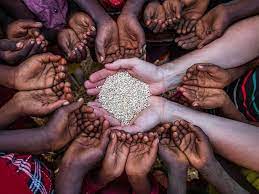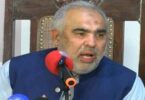Noor Zia
Nowadays, food insecurity is a serious and challenging problem around the globe. Food insecurity refers to a lack of nutritious food for growth and development. It can be due to the unavailability of food or limited access to food.
It is often rooted in poverty and hampers the country’s ability to develop its economy. In 2023, due to rapid population growth, severe climate fluctuations, and economic challenges, the problem of food insecurity has taken center stage around the globe. It can be long-term or short-term and is triggered by factors such as low income, unemployment, and sometimes by disability. The risk increases when there is no money to buy food and related stuff.
According to the World Food Programme (which works in 79 countries), over 345 million people will face high food insecurity in 2023. The number is not half, but double the number in 2020. It shows a shocking rise of 200 million people after the COVID-19 pandemic.
Reasons for global food insecurity:
The global population increases; rough estimate is that it will reach 9.7 billion by 2050. So, overpopulation places significant pressure on food production and systems of distribution, especially in developing countries. With the increase in population, there is no proper or balanced system for food distribution.
Besides overpopulation, extreme weather patterns and rising temperatures have disturbed agriculture around the globe. The unpredictable weather badly affects crops. Floods and droughts also worsen the world’s economy and agriculture.
In addition, poverty and income inequality in many regions are also the causes of global food insecurity. The problems are exacerbated by inflation and limited access to food. How can small kids lying on the banks of roads and flyovers earn money and provide food for their families?
Ongoing conflicts in most parts of the world also result in food insecurity. People are busy thinking about and taking part in conflicts, forgetting the fundamental need to provide food.
Impacts on health and education:
Food insecurity highly affects people’s health and education. If people do not have proper food, how can they get an education? “Health is wealth.” If you have poor health, you will be unable to do something. In countries where the cycle of poverty is expanding, people have poor health, and the ratio of education is too low, such as Afghanistan, Nigeria, etc. Also, malnutrition and poor academic performance are directly proportional to each other. A high illiteracy rate affects the overall economy of the country.
Global food insecurity is a severe challenge that needs a coordinated effort from governments, international organizations, NGOs, and the private sector. Solving this issue is not insurmountable. By adopting sustainable practices, investing in infrastructure, and prioritizing climate adaptation, we can work towards a world where food security is not a dream but a reality for all.
The writer is student of 8th Semester at Department of English, Islamia College university Peshawar.







